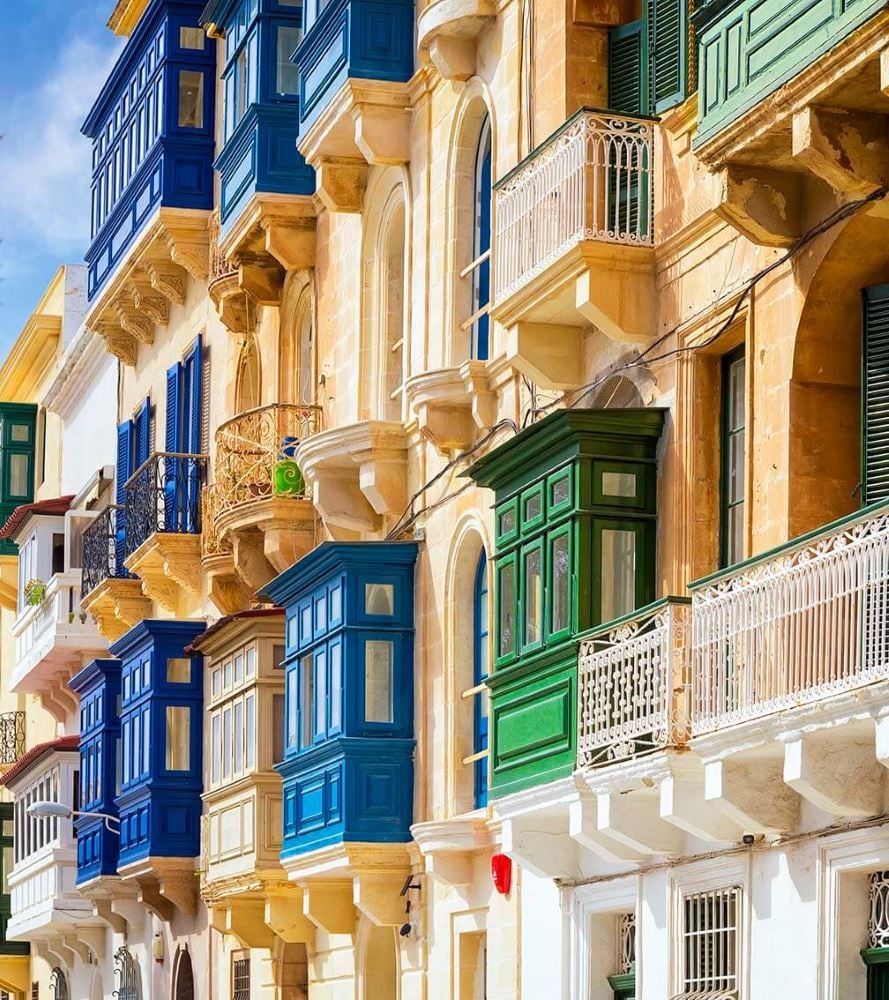Situated in the center of the Mediterranean Sea, Malta enjoys an excellent reputation for its splendid climate, friendly people, low crime rate, and superb quality of life. An attractive place in which to live or own a second home, Malta also has excellent air links.
Everything you need to know about acquiring premium real estate in Malta and linked to the Malta Permanent Residence Programme.
Minimum of five years
N/A
Sole ownership
3–5%
The Maltese real estate market has in recent years been one of Europe’s success stories, experiencing five years of consecutive growth prior to the global COVID-19 pandemic, both in the number of properties purchased and overall volume.
Malta is a nation of homeowners and Maltese people like to invest in property. This cultural propensity, together with the arrival of many foreign nationals, particularly from the affluent gaming and finance sectors, has created demand for property from locals and foreign buyers alike. While the property market appears to be stabilizing, there is a constant demand for high-quality property. Sliema, St. Julian’s, and Valletta are popular destinations for local and foreign investors.
The majority of real estate investors choose apartment living, and many modern developments have sprung up over the past five years to satisfy the demand for this type of accommodation. For those who prefer something with authentic Maltese character, elegant townhouses can be found in Malta’s towns and villages, together with classic countryside villas.
Before proceeding with the acquisition of property in Malta, buyers are advised to follow these crucial recommendations:
Foreign investors may purchase only one property in Malta, except for property purchased in a special designated area (SDA), which is unlimited. When purchasing outside an SDA, the purchased property cannot be rented out.
Once an offer has been accepted and a notary has been instructed, there are two steps to the property purchase that buyers need to consider: the promise of sale and the final deed.
A Maltese bank account is not required. The buyer transfers the funds directly into the notary’s account and the notary then makes all the payments on behalf of the buyer.
Over the recent years, the return on capital investment has been in excess of 5%, while the yield on rental income is approximately 3.5%.
Rental income is taxed at a standard rate of 15%.
There is no annual property tax in Malta. If the property is under leasehold, ground rent will apply. By law, apartment blocks must be managed by either a residence committee or a third-party management company, and condominium fees apply on all apartments.

The Global Migration assists international clients in obtaining residence and citizenship under the respective programs. Contact us to arrange an initial private consultation.

Have one of our qualified advisors contact you today.
We use cookies to give you the best possible experience. Click 'Accept all' to proceed as specified, or click 'Allow selection' to choose the types of cookies you will accept. For more information, please visit our Cookie Policy.